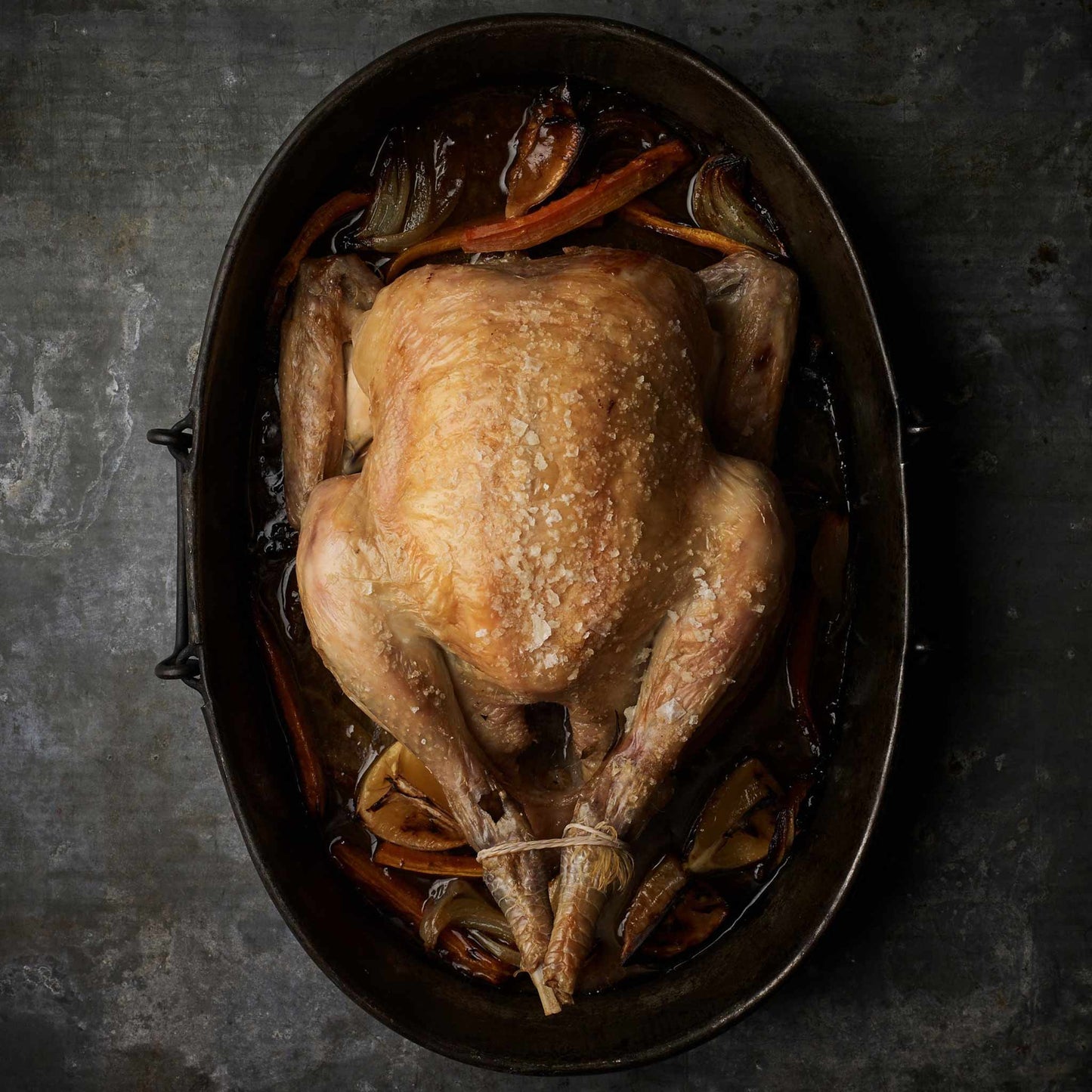We source our chicken from one farm in Leicestershire. The farm is Pasture for Life certified and rears truly free range, outdoor birds.

This year will be the fourth time we have actioned our Regenuary campaign, but this time it's different. New and improved.
We've explained the origins of the campaign in an article here, but as the movement has progressed and the idea has grown, we needed to reconsider what #Regenuary really means.
A movement of continuous improvement.
The most important aspect of Regenuary is that it is, and always should be, a movement. A movement of ideas as well as a movement of change. However, as it is a movement, it is also a journey with no end.
Every life has an impact, and all animal-based life on earth feeds on other life in one form or another.
The vast majority of everything we eat comes from agriculture, with some foods such as wild fish and game being harvested from nature. Agriculture is the controlled practice of cultivating plants and livestock, and this practice varies hugely in its impact, from having a very high impact, through to sustainable and even positive impact.
So, before we define the aims of Regenuary, it helps to define impact.
What do we mean by impact?
High impact farming:
The highest (or worst) impact we can have when farming is when we decimate an existing ecosystem to use the land for agriculture. The worst example of this would be harvesting wood from rainforests and subsequently using the land for a mono-crop or for grazing. In this case, a complex carbon rich ecosystem has been destroyed and replaced with a much less diverse system.
It cannot sequester atmospheric carbon and is not in balance, often requiring large amounts of external input (and resources) to get the desired output.
Low impact or sustainable farming:
Sustainable agriculture is farming in sustainable ways, meeting society's present food and textile needs without compromising the ability for current or future generations to meet their needs. However, sustainability does not undo the damage of the past.
For example, land can be farmed in a sustainable way if it can continue to produce for us using inputs that are not finite. However, if a forest was cleared for this agriculture, that initial change of land use is very high impact. So, taken to a logical extreme, 'sustainable' can be defined as simply not making things either better or worse — just maintained in its current state.
Regenerative farming:
Regenerative farming is all about creating positive impact within the system. In our example above, it would mean restoring the forest by planting and managing as well as working with nature to increase biodiversity through all trophic levels. It means enabling the system to produce for us without detriment. Not just sustaining the land but regenerating it.
So, what's the point of the Regenuary campaign?
Very simply, the Regenuary movement has one goal: to lower the impact of our consumption. And this can only be achieved when we are able to have open and informed, continuous discussion.
Regenuary seeks to break the oversimplified narrative that certain foods are always lower impact than others. This is especially important when we consider plant-based versus omnivorous diets because there are no inherently environmentally damaging or restoring foods — only damaging or restoring methods for producing them.
The methods of production dictate impact, and that is where we need to focus our attention and efforts this Regenuary.



